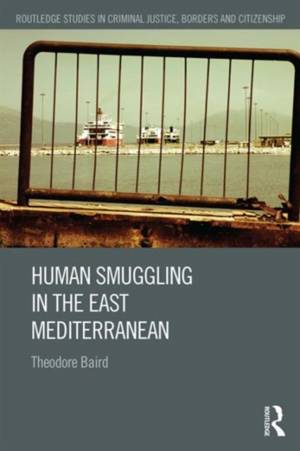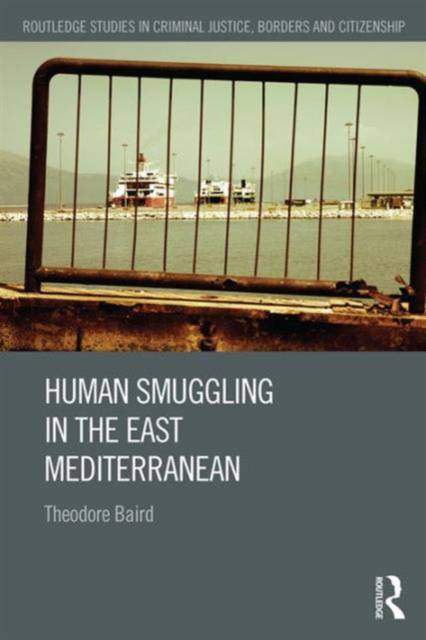
- Retrait gratuit dans votre magasin Club
- 7.000.000 titres dans notre catalogue
- Payer en toute sécurité
- Toujours un magasin près de chez vous
- Retrait gratuit dans votre magasin Club
- 7.000.000 titres dans notre catalogue
- Payer en toute sécurité
- Toujours un magasin près de chez vous
Description
The organization of human smuggling from the Middle East and Africa through Turkey and the Eastern Mediterranean has become a contemporary political concern throughout Europe, receiving intense and polarised media attention. This timely book reformulates how we conceive of human smuggling, challenging popular and political conceptions of the practice in Europe.
This book proposes a new framework for examining the causes and effects of human smuggling in the Mediterranean, analysing the contingent patterns of human smuggling in the countries of the Eastern Mediterranean with a geographic focus on Turkey. Building on unique empirical material from fieldwork in Turkey and Greece, this book describes the rise of human smuggling as a practice, viewed through a framework of multiple 'contingencies'. Uniquely, this book includes in-depth testimonies of migrants who have survived crossing the Aegean Sea and details the strategies and tactics of the facilitators who help them.
In Human Smuggling in the Eastern Mediterranean, Theodore Baird puts a human face to the tragedies occurring in the Mediterranean while maintaining that contingent historical, political, economic, and geographic forces have aligned to propel the practice of human smuggling forward. The book will be of interest to scholars working in migration studies, as well as scholars in the fields of sociology, criminology, law, political science, anthropology, and geography.
Spécifications
Parties prenantes
- Auteur(s) :
- Editeur:
Contenu
- Nombre de pages :
- 194
- Langue:
- Anglais
- Collection :
Caractéristiques
- EAN:
- 9781138656352
- Date de parution :
- 08-11-16
- Format:
- Livre relié
- Format numérique:
- Genaaid
- Dimensions :
- 156 mm x 234 mm
- Poids :
- 449 g







